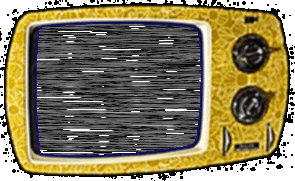
The Japanese automaker tries not to take sides. It only wants to sell cars and SUVs. So it runs ads to reach a liberal audience on Rachel Maddow's MSNBC show. And Subaru runs ads on conservative Sean Hannity's Fox News show, where it is one of Hannity's top advertisers, having spent more than $1.5 million over the past two years, according to Kantar Media.
Now, Subaru is one of the dozens of companies facing pressure to abandon both Maddow and Hannity as partisan activists on either side of the political divide increasingly target advertisers to force changes on opinion news programs.
Hannity has been hit hard in recent weeks as a flurry of companies - including Cars.com, hotel chain Crowne Plaza and mattress maker Leesa Sleep - have dropped their ads after Hannity initially refused to back off from a discredited theory behind the murder of former Democratic National Committee staff member Seth Rich. The pressure campaign was started by the left-leaning group Media Matters of America.
That provoked the Media Equality Project, a small conservative activist group, to launch a campaign called "Stop the Scalping," which targets advertisers on liberal TV programs such as Maddow's. Hannity liked the idea so much he invited campaign representatives on his show three times this week.
While letter-writing campaigns and upset consumers are not new, companies say they are contending with a new level of anger spurred by President Donald Trump's contentious election and a growing expectation that companies should no longer sit on the sidelines.
"I can see a definite increase in polarization and in their ability to reach us with these campaigns," said Michael McHale, Subaru's director of corporate communications.
While Subaru has received complaints, the company has no plans to stop advertising on either Hannity or Maddow, McHale said. The company makes these decisions based on the issues involved and the weight of public opinion.
"We're trying to be a good company that does good things," McHale said.
Sometimes that means Subaru takes action. The car company was one of many companies that pulled ads from Bill O'Reilly's show on Fox News in April following the disclosure that several women had settled claims accusing him of inappropriate behavior. The conservative host was eventually forced off the air.
One of the problems faced by companies is their ads run on TV shows that have become more polarized and edgy, leading to more opportunities to offend potential customers.
TV shows - especially ones focused on politics - "are pushing the envelope of what advertisers are comfortable being associated with," said Bill Day of Frank Magid Associates, a consulting firm.
Many firms keep advertising blacklists - lists of shows or TV categories that they want their ads to avoid. A common one is for airliners to have a clause pulling their ads from news channels when a plane crash makes headlines.
Hannity sparked outrage last month as he continued to discuss a conspiratorial theory that Seth Rich was killed after supposedly supplying hacked DNC emails to WikiLeaks. Rich's family begged Hannity to stop touting the theory, pointing out that official investigators found the idea baseless. Fox News itself retracted its own brief story about the case. But Hannity plowed on.
That is what spurred Media Matters to publish a list of Hannity advertisers. The implication was clear: Contact them.
"It's a pressure point - that's why you go to the money," Media Matters President Angelo Carusone said. "It's about accountability."
Companies sometimes seem unsure how to respond.
USAA, the financial services companies for military families, at first yanked its ads off Hannity - plus Maddow and others, such as Chris Matthews' MSNBC show and CNN anchor Jake Tapper's show. It was the Hannity decision that grabbed the most attention and was met with a backlash from USAA clients. So USAA reversed course. Earlier this week, the company issued a statement saying that it "believes in free speech" and was reinstating ads across all of these shows while it reevaluates its advertising rules.
The Media Equality Project is run by two former radio talk-show hosts, co-founders Melanie Morgan and Brian Maloney. Their "Stop the Scalping" campaign was a response to Media Matters's targeting of Hannity.
"I just don't see why [what Hannity did] calls for his removal," Maloney said. "It's just not that big of a deal."
In any case, most companies would prefer not to deal with such issues.
Throughout the recent controversy, Hannity's top advertiser - My Pillow - has stood by him.
My Pillow, a foam pillow company based in Chaska, Minnesota, spent more than $9 million advertising on Hannity last year. Company founder Michael Lindell said he never considered yanking his ads off the Fox News show - or CNN, where he also runs TV spots.
But, he said, he has noticed that it has gotten harder to find safe, unobjectionable places to run his ads. The nation has become so divided, Lindell said. But he said he thinks he has no choice.
"I've got to stick with what I do."


 Contact The Editor
Contact The Editor
 Articles By This Author
Articles By This Author